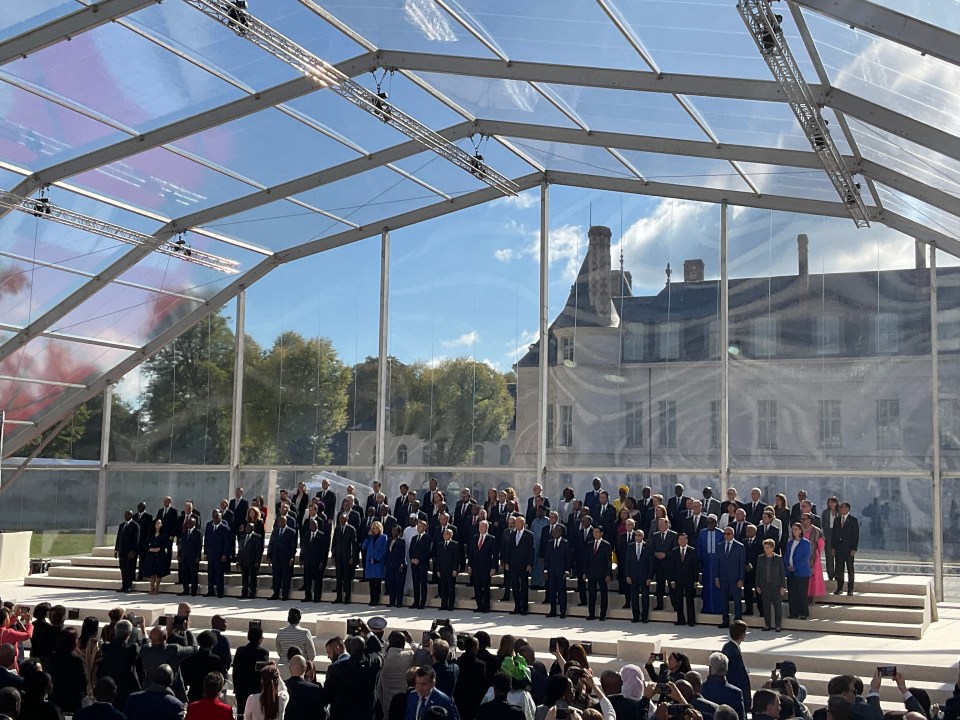The Notebook: Bringing people together in a fractured world
When President Macron invites you to a global summit along with 50-odd world leaders, it would be rude not to accept, writes Neil Bennett after attending the 19th Francophonie summit


Where the City’s movers and shakers have their say. Today, Neil Bennett, global co-CEO of H/Advisors, takes the pen
Bringing people together in a fractured world
When President Macron invites you to a global summit along with 50-odd world leaders, it would be rude not to accept. So it was that last Friday I was the proud representative of H/Advisors at the 19th Francophonie Summit, in the grounds of the glorious Chateau Villers-Coterets in North-East France.
If you have never heard of Francophonie, you are not alone. The organisation is intended to be France’s answer to our own Commonwealth, but it has fallen into relative disrepair in recent years, so much so that this was its first summit in 33 years. Nevertheless, Macron was able to assemble representatives from more than 80 countries for this two day event, in a typically sweeping attempt to reassert France’s – and the French language’s – influence on the world stage.

The setting was appropriate. Villers-Coterets is a 16th century Valois chateau that has been given a make-over to become a shrine for the French language and allowed Macron to greet his A list guests at the end of a sweeping drive, pennants fluttering. As delegates we were meanwhile hustled into an enormous polytunnel in the garden to meet and greet each other. It was quite an experience – in just two hours I had conversations on everything from the cocoa harvest in the Cote d’Ivoire, the vanilla harvest in the Comoros Islands, the state of French education with the man from the ministry, the Armenian genocide and a proposed new university for African leaders.
The presidents and prime ministers all gathered on stage for a ‘family photo’, although it looked more like Macron’s trophy cabinet and there was some noticeable jostling at the back – people are people after all.
Then came the speeches. Macron told us that French was the language of mediation, but also innovation, technology and commerce. This was somewhat dented when the woman from Google chose to address the audience in English, but entrepreneur remains a French word nonetheless. Macron was followed by various world leaders, all attesting to the power of the French language and culture around the globe.
France has had a tough time of late on the world stage. Coups in Mali, Burkina Faso and Niger in the past three years have seen French-leaning governments replaced by Russian-leaning juntas. While French is spoken by over 320m people around the world, it is heavily eclipsed by English and its 1.3bn speakers.
Against this backdrop it is impressive that Macron, assailed by politics at home and abroad, chose to do something typically imperial and convene this summit. Will it move the dial in terms of France’s global position, and the issues that assail so many of the French-speaking nations around the world (most notably today, Lebanon)? On its own no. But there has to be something reassuring about any attempt to convene so many nations and unite them under a common purpose and cultural reference point.
India at the centre
On that subject, the H/Advisors Book Club was treated to a great visit last week from William Dalrymple, the pre-eminent specialist in Indian history. His new book, The Golden Road, makes an important contemporary political and economic point as well as historical ones.
Over the past decade The Silk Road has become a powerful global concept, emphasising China’s role in world trade and culture over the centuries. This has done no harm at all to China’s expansionist ambitions as it has imposed its Belt and Road initiative everywhere. Dalrymple argues however that the Silk Road concept underplays India’s pivotal role in global trade and culture – which he dubs The Golden Road.
Clearly there was more than one road. And not all of them led to Rome.
And there’s more
Sticking to my theme, I can hugely recommend the blockbuster exhibition at the British Museum, Silk Roads (Adults £24, until 23 February). The Museum has amassed and curated an exceptional collection that reflects the enormous cultural interchanges along the length of the Silk Road and given visitors a real sense of the journey without diluting any of the magic and mysticism that names like Samarkand evoke.


